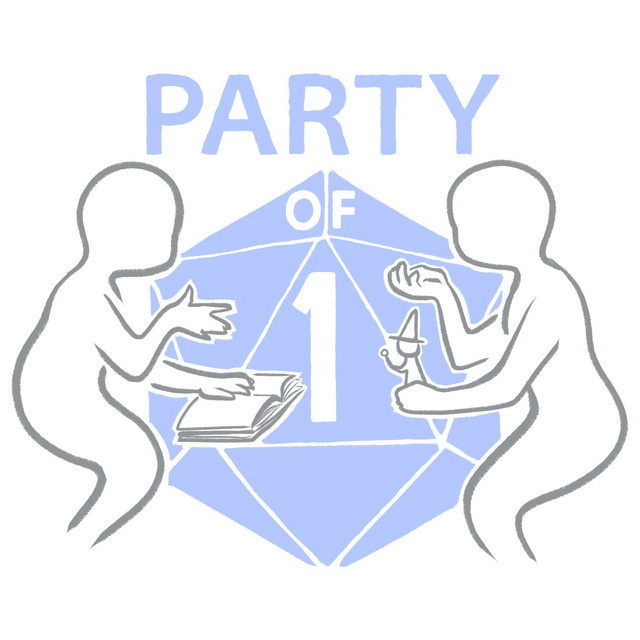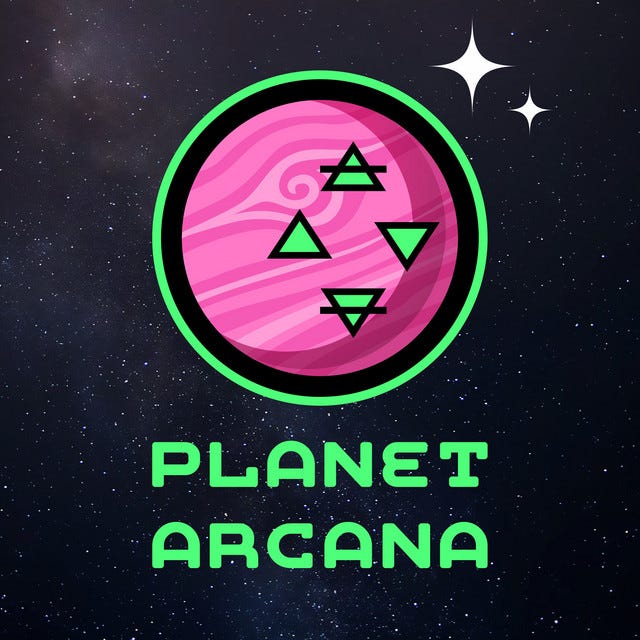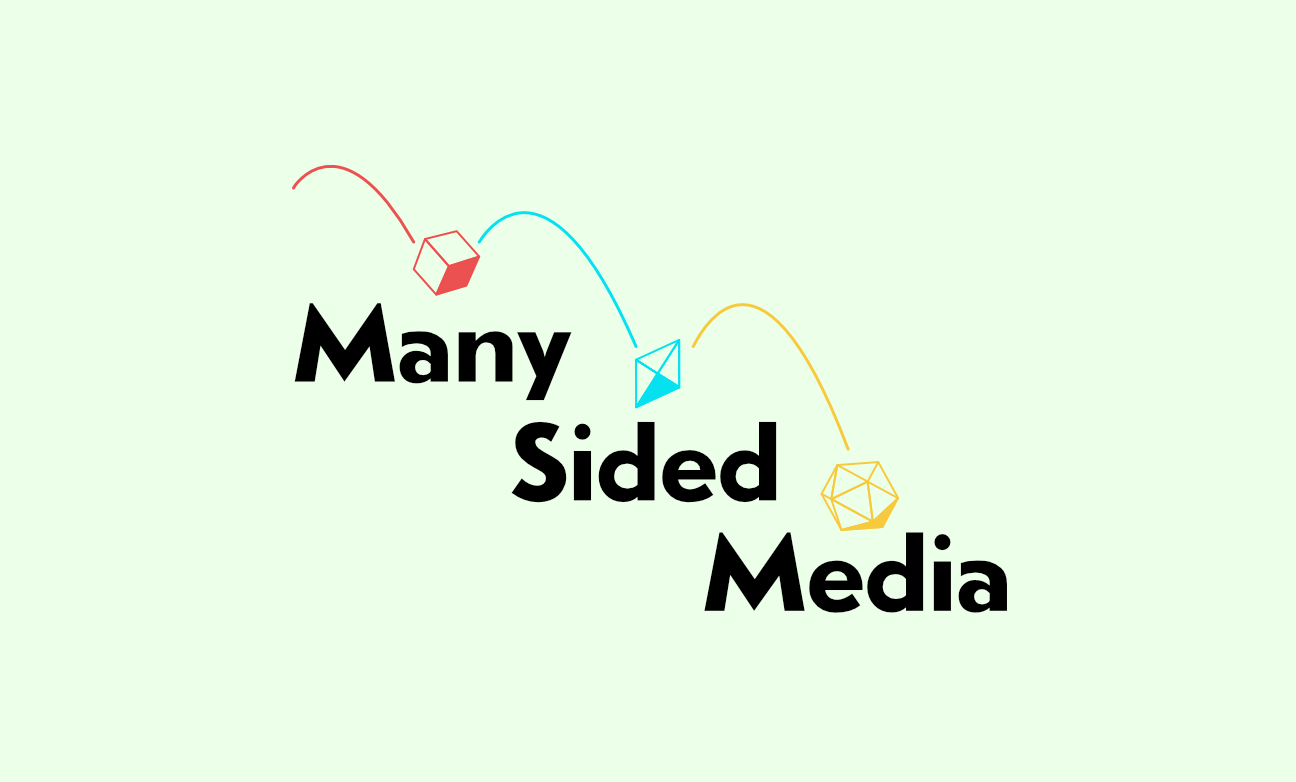Welcome to the final part of our How to Build an Actual Play Podcast series.
After giving you four newsletters worth of my verbosity, I thought it was fitting to end this series with some great advice from the producers I admire who are making some of the best podcasts out there.
Enjoy!
-Brian
Ester Ellis - Dungeons & Daddies
Piece of Advice 1: Scope
When deciding how much editing and production value is right to you, figure out how much time you will reliably have and your release schedule. Sustainability is key, particularly for Actual Plays, and it is better to find a consistent pace that won't burn you out than to shoot for the moon and constantly derail your production with delayed episodes.
Piece of Advice 2: The North Star for sound
There is one thing you should always focus on when doing post production on an episode: Your audience's listening experience.
There are dozens of forms a good Actual Play can take, and creators can lose sight of what they should do and why. But when you put on those headphones, you know if your audio quality is going to turn away listeners, or if the music is too distracting, or if there's a section that doesn't need to be there. Keep your audience in mind and you'll be fine.
Recommended Listening: S2 Ep.1 - Dungeons and D.A.D.D.I.E.S.
Eric Silver - Join the Party
The best piece of advice I would give to anyone starting a podcast is to make your show unique. Your show needs to be doing work alongside the hosts -- it has a voice that doesn't come from one person, it should have a sense of self that doesn't need to be pulled out of thin air every episode, and it has principles that everyone makes sure the work is reflecting. By being unique, the show premise itself will pique interest and attract listeners on its own. The show can stand out by having a new premise or a spin on a familiar one, host perspectives that are different than what's out there, covering a subject (or, in the AP space, using a game system) that hasn't been elevated, and more and more. Spending a significant amount of time analyzing and understanding the genre space you're jumping into has never been more needed. This is particularly important when we're talking about Actual Plays, a genre that's gained a head of creation steam in the last half decade.
Remember, some people named their show Not Another D&D Podcast back in 2018! You shouldn't be competing with (Insert Big Show Here), you should be making yours stand out with a unique premise.
In our genre, we're seeing the LA-ification of the most popular echelon: a cast of LA-based actors play rules-light D&D5e that's closer akin to long-form improv than at-home play, and the productions are armed with larger budgets to spend on LA-based, sets, equipment, and not-on-mic production staff. And a lot of these shows are wildly popular because they're incredible and filled with talent! But just because that is the current artistic mode doesn't mean you need to emulate that. In fact, there is immense value for you to strive to make the show you want to see and make the show that isn't already out there.
Recommended Listening: Legends of Esca Island 1
Jeff Stormer - Party of One
The top two pieces of practical advice I'd give to anyone starting a show would be:
If you're looking to grow an audience for your show, build a marketing plan prior to launch. I've had this checklist from the folks at Audacious Machine Creative saved for years, and I refer to it whenever launching a show.
Figure out your budget, and don't feel pressured to overspend--especially if you're not sure you want to stick with it longterm. You can get a pro-quality mic for 80 bucks; you don't need to spend $700, especially if you're just starting out, and especially if you're just recording in your bedroom.
Start small, start achievable, and scale up as needed.
Recommended Listening: 311 - This My Little Pony RPG Alex Pearlman Found in His House When He Moved In
Shane O’Connell - Mission to Zyxx
My number one tip for someone starting a narrative podcast is to remember that the first episode is your most important episode. While it may not be your best or most refined work, it will likely receive the most plays and be the deciding factor for potential subscribers. Therefore, it's crucial to make your first episode the best it can be. Here are some strategies for making your episode one as good as it can be:
Create a pilot episode not intended for release: This strategy allows you to practice and refine your approach without the pressure of producing something for the public. Use this opportunity to experiment, gather feedback, and make necessary adjustments before diving into your official first episode.
Edit more rigorously than usual
Your first episode should be as polished as possible to make a strong impression. Dedicate extra time and effort to editing, ensuring that the pacing, sound quality, and storytelling are all top-notch. Save longer episodes for later in the season when your audience is more familiar with the cast and characters, and more forgiving of any imperfections.
Establish a schedule and stick to it
Consistency is key when it comes to podcasting, so create a realistic production schedule and hold yourself accountable.
Don't let perfectionism prevent you from completing your work.
Remember that it's better to release a good, timely episode than to endlessly delay in pursuit of unattainable perfection.
Address any significant issues immediately
For example, if a cast member's audio quality is poor, don't wait to fix it in the next episode. Sometimes, it's necessary to make tough decisions and discard work to resolve seemingly minor issues, but doing so will ultimately benefit your podcast in the long run.
While wrapping up the first episode of Mission to Zyxx, I remember thinking, "There's no way we can maintain this pace. We've bitten off more than we can chew. It's impossible to produce an episode every week!" However, as we progressed, our workflow became faster and more manageable. Trust that you'll naturally become more efficient and find ways to streamline the process as you go.
Recommended Listening: Episode 401: Beware the Allwheat! (The sound design in the first 10 minutes of this episode is MIND-BLOWING)
** This is easily my favorite podcast of all time and Shane is the biggest reason I got into sound design. I can not recommend anything higher than I recommend this podcast.
J Strautman - Planet Arcana
Create Your Own Energy
The most important skill I've been able to transfer from being a professional musician to an Actual Play performer is creating energy from nothing. When I'm playing a show live on stage, the audience is feeding me energy, and I use it to give a great performance, then deliver the energy back in a new form. It's a delicious & perpetual feeding cycle of emotions and atmosphere and ambiance. Energy! But when I'm recording a record, there's no audience to draw from. All the energy has to come from within. It's harder, but I'm also more in control.
Typically while recording an Actual Play, you're not going to have an audience in the room with you, so all the onus of creating the energy is on you.
When you're able to tap into it at the table, your show will become electric. And in doing so, you'll invite the audience in to feel all the emotions with you. Cheer loudly for big moments! Let yourself feel the lows of fictional devastating blows. Be safe, of course, but go big. The energy you manifest will transfer to listeners later and will act as both an invitation in and an open door that will beckon them to keep coming back for more.
Congratulate Yourselves
After every session, congratulate each other on an amazing performance, then tell yourself you absolutely crushed it. It's okay if it wasn't actually amazing. The point is to rewire your brain to feel the highs of all the energy at the table. Next time, you'll come back excited to crush it again, and you'll give your best. After all, your best is amazing, and electric, right?
Remind yourself and your group often that your ideas are great, cool, unique, interesting. There's always time outside the table to workshop and tweak ideas until they become the best versions. But when you're improvising at the table and you only get one shot, the most important thing is to put as much of yourself into it as you can, and the best way I've found to do that is to go into each performance knowing I'm gonna crush it.
Recommended Listening: Planet Arcana | Tangled Blessings
David Devereaux - Tin Can Audio
Go into production thinking that everything will take longer than you think it will. Planning, recording, editing, sound design, give yourself more time than you think you need.
Have a running document with notes on take numbers and which takes are best. Nothing kills an edit more than having to re-listen to 10+ hours of recording to find the best bits. If you have a document listing which takes are best, the initial edit comes together so much quicker and your editor will still like you (especially if you are the editor).
Recommended Listening: Anamnesis: An Audio Drama
Elliot Davis - Many Sided Media
Trust your ears!
Even if you're just starting out, trust when you think that microphone needs adjustment, that pickup should be gotten for safety, or that one cut needs to be made to help the scene move along.
Ears are the gut of podcasting.
Release the episode! Don't let your podcast live in personal development hell. Your favorite podcast did not find its footing in the first episode.
Recommended Listening: My First Dungeon: 10 Candles - The Black Dahlia
Thanks for Reading!
And that is it for this five-part series on How to Build an Actual Play Podcast.
I sincerely hope this series has been filled with enough practical advice to help a few of you take the plunge into actual play podcasting. If you ever have any questions about podcast production, don’t hesitate to reach out. I’d love to help you get started.
Thanks again to all the excellent producers and creators who contributed their advice to this article. It was a real treat to include your wisdom in this series.
Upcoming Schedule
6/23 - Good Society - Interview w/ Hayley Gordon (Good Society creator)
6/30 - Good Society Actual Play (Act 1)
7/7 - Good Society Actual Play (Act 2)
7/14 - Good Society Cast Talkback














For anyone wanting inspiration on what is possible with sound design and production in the actual play realm, take a listen to 'World Beyond Number'.
It's raised the bar so high I've literally been finding myself laughing out loud at how good it is.
Be warned those who wish to achieve these highs, Taylor Moore who produces the show said it was taking him around 90 hours per episode to edit, mix, score, and add SFX in the early episodes!